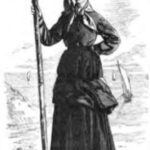Questions of gender in French and European Protestantism revolve around three poles: participation in struggles within society for equal rights, inclusion and equality in Churches, and the production of feminist or LGBT theologies. Protestants took part in women’s earliest struggles during the nineteenth century but did so without producing a feminist theology. As the question of women’s access to pastoral ministry emerged during the first half of the twentieth century, female youth movements formed, leading to the creation of a Protestant feminism during the 1960s that was active in the fight for contraception and abortion. The first feminist theologies truly blossomed during the 1970s, particularly in Germany. LGBT Christian movements were born during the same period, especially in Great Britain in dialogue with the United States. In Churches, the debates concentrated on access for LGBT individuals to the ministry as priests, and requests for blessings for same-sex unions.
Collection: Images, Texts
Project: 10. Churches and religions in Europe.
Chronology: 19th-21st century
Scope: Secondary Education, Higher Education
Resource type: Article
Format: Images|Texts
Source: Encyclopédie d'histoire numérique de l'Europe
Language: English and French
Date: 19th-21st century
Owner: Filippo Galletti (Modernalia)
Copyright: EHNE
Abstract: Article by Stéphane Lavignotte published in the Encyclopédie d'histoire numérique de l'Europe (2020)
Tags





